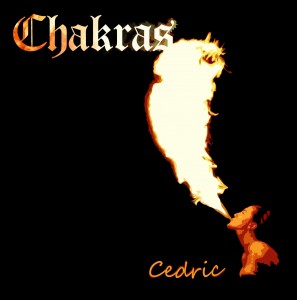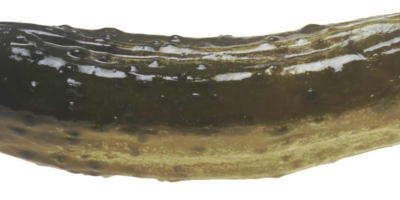By Keith Halladay
In the hard rock genre, those singers who happen to be women tend to choose vocal styles that fall into one of two categories: the bad-girl snarl and the earnest, love-besotted belt.
One immediately thinks of Cherie Currie with the Runaways or of Lita Ford and Joan Jett, both in that band and in their solo careers, as classic examples of the first approach; their voices were of the sort that seemed to announce to the world, “yes, we’re available, but you’d better be as tough as we are if you want a chance.” Later practitioners of the style include Donita Sparks with L7 and Courtney Love with Hole, who each have undeniable appeal, but the expressive range of the bad-girl snarl is limited.
Then, in 2004, came a band called Evanescence and a song called “Bring Me to Life,” which was notable for being as terrifyingly inescapable as any radio hit of recent memory, and for the quality of Amy Lee’s vocals. Gone was the hard-rock snarl; in its place Lee sang plaintively and with real power, as though someone had plucked a fresh-faced mezzo-soprano from a college women’s a cappella outfit and plunked her down in the middle of a Slipknot rehearsal.
Lee was no innovator: Christina Scabbia has given Lacuna Coil a powerful melodic voice since the late nineties, but with “Bring Me to Life” Evanescence seemed to make strong, feminine singing over hard rock and metal riffs the right thing to do. Even better, more recent bands such as In This Moment (featuring vocalist Maria Brink) showcase a bit of both styles, meaning that it may finally be culturally acceptable for a female hard rock singer to have range. Liberating.
 Into this new world struts Cincinnati’s Chakras, whose debut full-length album, Cedric, was released in June. The band’s sound is dominated by the strong vocals of Andrea Simler-DeGolier and the twin-guitar attack of Bill Menke and Mark Szabo, while Steve Kolonski (drums) and Jeff Conner (bass), propel the rhythms.
Into this new world struts Cincinnati’s Chakras, whose debut full-length album, Cedric, was released in June. The band’s sound is dominated by the strong vocals of Andrea Simler-DeGolier and the twin-guitar attack of Bill Menke and Mark Szabo, while Steve Kolonski (drums) and Jeff Conner (bass), propel the rhythms.
Cedric‘s opening track, “999,” begins with a rolling guitar riff, reminiscent of Soundgarden’s “Jesus Christ Pose”, that soon gives way to Simler-DeGolier, in snarl mode, lamenting “a world that sends youth out to fight / Regardless of the wrong.” The aggression of the verse in turn yields to a soaring, reconciling chorus that exhorts, “you will make us proud and end the suffering.”
It isn’t clear, in “999,” who will be ending the suffering, or whether the song is to be taken as an anti-war diatribe, an expression of solidarity with U.S. troops and their allies, or some combination of both, but the ambiguity seems intended; Simler-DeGolier’s lyrics often address tangible topics obliquely, using metaphor and abstraction to provide her the words with a touch of universality. It’s a tried-and-true rock technique, though it doesn’t always work on Cedric. In “BDSM,” for example, the psychological starkness of “Harnesses whips and chains / All the while in pain / I will ask that you plead / I will do the same” is fuzzied by a vague refrain: “Set your boundaries wide / You may need to run and hide.” Reznor wouldn’t settle for that. Yet the lyrics are more frequently brave, emotional, and compelling, no more so than during the driving power ballad “Souvenir,” when Simler-DeGolier sings, “I will crawl on my knees across your floor / It never mattered because you always wanted more.”
Two of the stronger cuts on Cedric are the metal-tinged “Under God” and the punk-flavored “Split Lip,” each of which find a healthy balance between the tendencies of the guitars toward heavy riffing and the power-pop leanings of Simler-DeGolier’s vocals. Likewise “First Footings,” with puts a radio-ready sheen on chugging, Zeppelin-esque rhythms. In fact the entire album sounds a bit familiar, like something you’ve already hummed along with in the car. That isn’t to say it’s derivative music, but merely that the influences are clear and traceable; Chakras play heavy pop of the sort that’s a staple of “rock alternative” radio these days, and they play it very well. They do stick to the formula: brooding verses followed by power-chord choruses followed by still-more-brooding bridge sections, making the final chorus just that much more triumphant. But it works, and they do it in earnest.
Cedric is, of course, only the first record by a new act, and a self-released one at that, and as such it’s a remarkable achievement. While listening I did begin to wonder what business a Chakras record made with the assistance of a big-budget producer, and with more consistently clean engineering, might do; the answer is that it would probably do quite well, given the band’s smart songwriting sensibilities. But you be the judge: Chakras is opening for Lexington’s Business Time at Buster’s on the 20th.



Leave a Reply